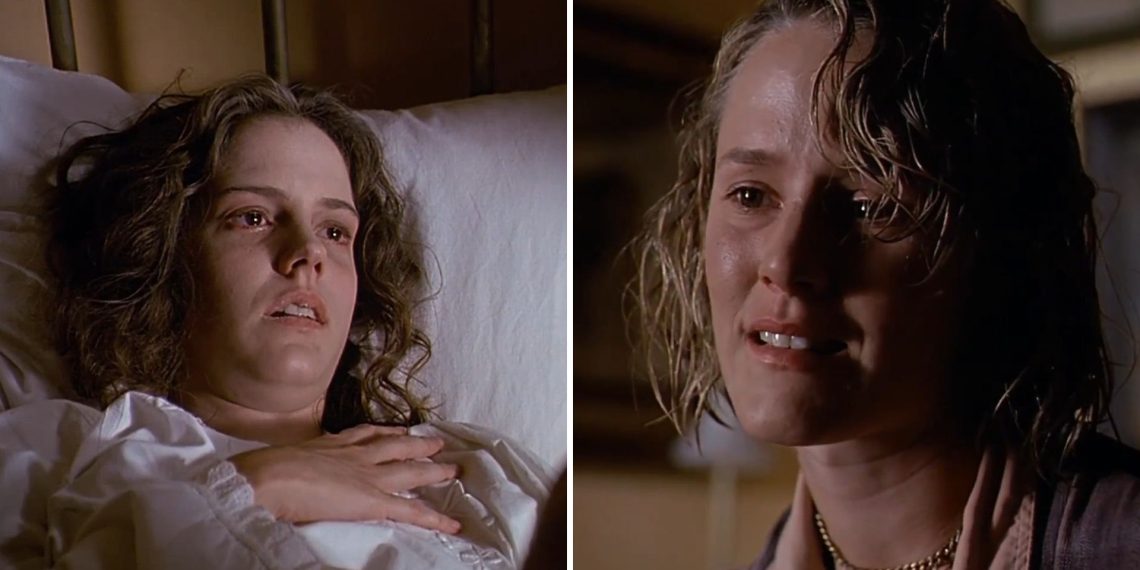Idgie Threadgood is a lesbian fashion icon if I ever saw one. Nobody warned me; watching this film was like getting roundhouse kicked in the feelings. My eyes welled up a little bit whilst watching this film, and that’s impressive because I stopped feeling a long, long time ago.
I am so happy that I finally had a chance to watch this film because it’s a classic. It’s not just a classic, but it’s a lesbian classic. I can imagine this film made so many lesbians in the early 90s very happy. This film is well-loved for a reason, it is.
As a disclaimer, I do think that this film is a lesbian film. However, the lesbianism in this film relies on the suggestion it is not explicit, and therefore the relationship between Idgie and Ruth is up for interpretation because nothing is explicitly stated.
But for anybody who can read a room, I think it’s quite obvious what this film is about, and I think it’s fair to say that it’s a lesbian film for sure, and a lesbian classic as well. I don’t think the lack of explicitness is detrimental to this film or takes away from it in any way, so yeah.
Fried Green Tomatoes Movie Explained
Fried Green Tomatoes centers on stuck housewife Evelyn Couch, who meets lively elderly woman Ninny Threadgoode at a nursing facility and who lifts Evelyn’s spirits with stories from her life.
Through Ninny’s account of her free-spirited sister-in-law Idgie’s adventures running a tiny cafe in Alabama in the 1920s and Idgie’s friendship with Ruth, Evelyn is inspired to make positive changes in her own life.
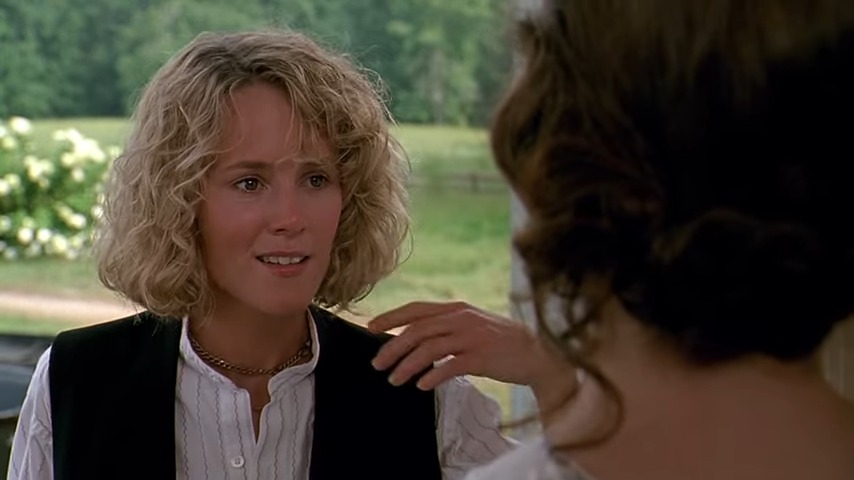
First of all, Kathy Bates, a self-explanator, is always a gift to see her on my screen. This film is just a collection of heartfelt moments, wonderfully threaded together, and it also explores a lot of the sociopolitical issues within that time period: Racism, gender, non-conformity, domestic abuse, and the lack of justice in the legal system.
I especially love the way that the film explored gender nonconformity. I think its portrayal of a gender non-conforming woman is one of the reasons why this film is so beloved by lesbians.
A lot of lesbians are, to a degree, gender nonconforming, and so a lot of people recognize something of themselves in the character of Idgie Threadgood, and it’s not just her outward appearance that we can connect to.
Idgie is a character who is just so free and completely herself, and it’s refreshing to see a female character in a film who isn’t confined and trapped by her womanhood; she exists outside of it.
I also adored the vintage aspects of the film, especially the cars and the clothing. There’s also a very young Yoga Jones from Orange is the new black in this film, which was a fun surprise for me personally (Being an Orange is the new black fan and all.)
Did Idgie And Ruth Love Each Other?
Now the film largely revolves around the relationship between Idgie and Ruth, which in my opinion, certainly goes beyond just friendship. The film suggests this in a way that is both subtle and yet obvious.
We have Idgie’s reaction, which is gay panic to being kissed on the cheek by Ruth. We have the fact that Idgie doesn’t attend Ruth’s wedding with Frank. And we see the way Ruth just gives Idgie this knowing look more than once, which says it all.
They were also both more or less parents to Ruth’s baby, and neither of them seemed interested in the company of anyone else, especially once they started living together. These are all very obvious signs that their relationship was a romantic one. But, of course, a relationship like that would have to be hidden.
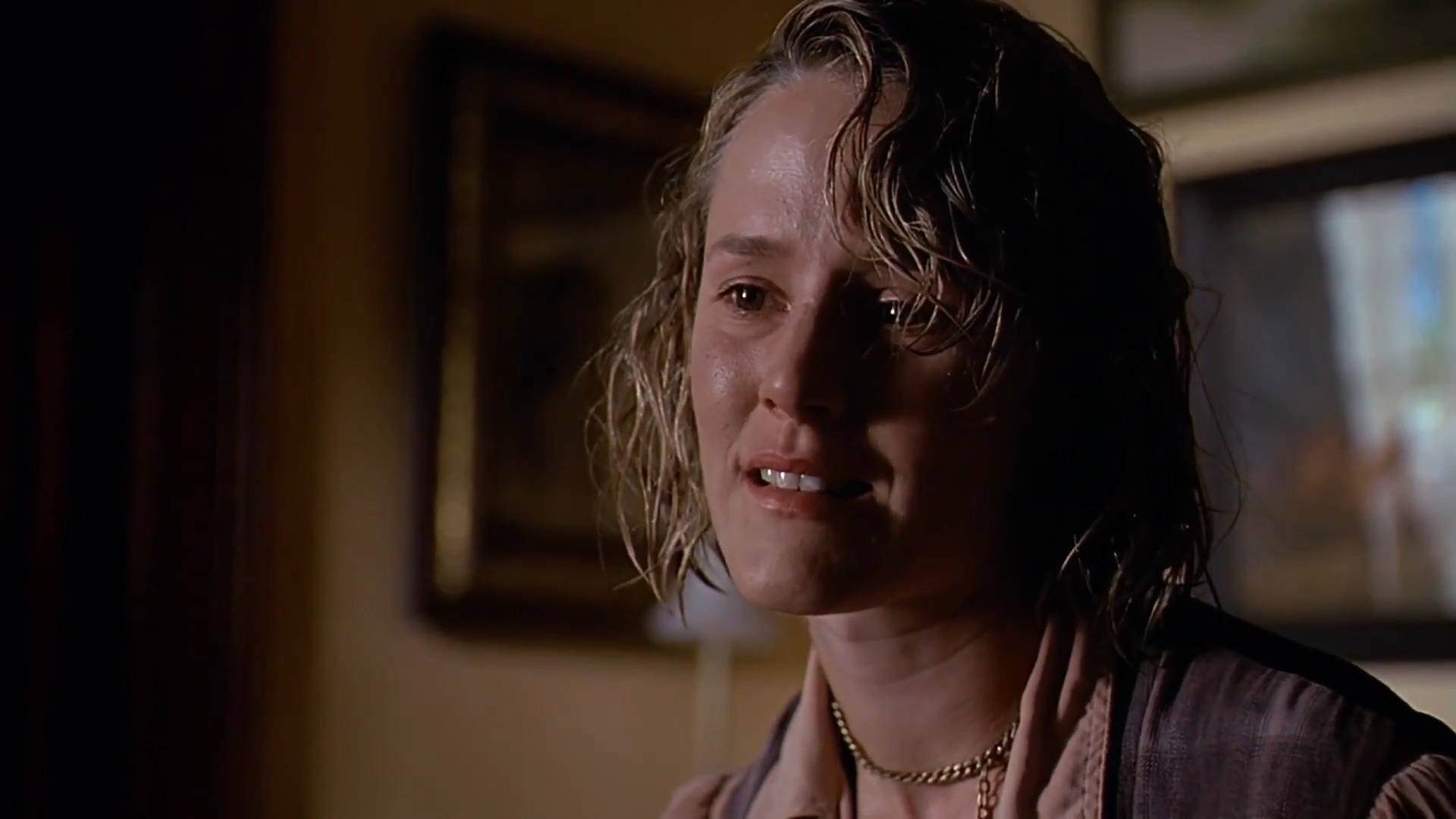
I’m not altogether sure a mainstream audience in 1991 would have understood or appreciated a relationship like that all that much, either. So it’s not surprising that the film only alluded to a romantic relationship and never gave a confirmation.
Of course, the lack of confirmation does leave room for debate, which is fair. I mean, everybody will interpret this film in their own way.
But honestly, I don’t feel like the film shied away from the true nature of Ruth and Idgie’s relationship at all. It was there to see for anybody who can read a room, and the intensity of their relationship shines through, regardless of its subtlety.
Of course, that kind of ambiguity surrounding a lesbian relationship wouldn’t fly in this day and age, but we’re living in very different times. So it’s not really fair to hold the film up to today’s standards of lesbian portrait and representation.
Frank’s Death
In the end, Smoote has little to no evidence to support what he says throughout the trial. Frank’s body hasn’t been located even after the car was found. Moreover, Big George and Idgie, who were described as suspicious due to their shared acquaintance with the woman and race, each have an explanation for their actions.
Ruth uses a fake Bible to get a Reverend to lie on the witness stand in their favor, which further strengthens their case. Consequently, Big George and Idgie succeed in their trial, so Frank’s death is dismissed as an accident.
Ninny found out that Smokey, a frequent client of the cafe, tried to stop Frank on the second night he arrived to take Buddy. But when he couldn’t hold out any longer, Sipsey showed up and murdered Frank to protect himself.
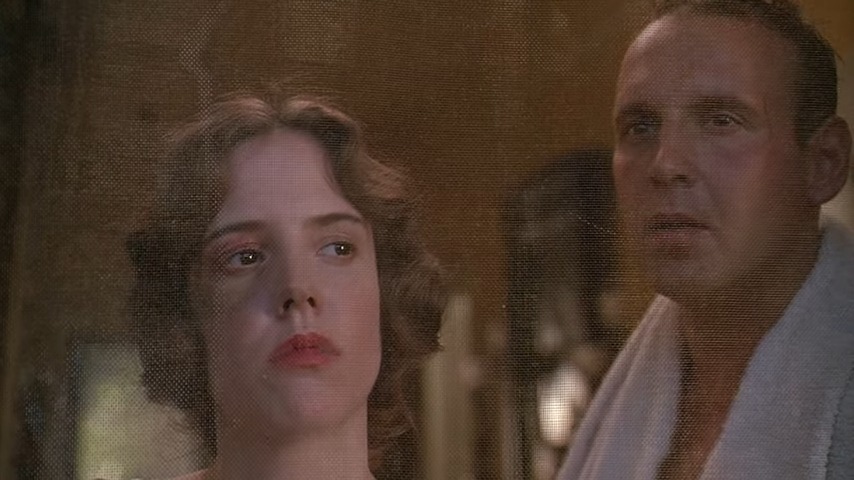
Nonetheless, everyone—including Idgie—knew without doubt that Sipsey would get a prison term or worse for Frank’s killing because of the unfair law that was in place at the time towards Black people.
They also chose to dispose of his car and barbecue the body the following day as café meat in order to hide his death. That day, they try to talk regulars out of eating the meat, but nobody complains when Smoote, who is investigating Frank’s murder, eats BBQ.
Ending Explained
Following her exoneration as a suspect in Frank’s slaying, Idgie resumes her life with Ruth.
The two ladies live together and nurture Buddy Jr. in a happy home environment, even though the movie doesn’t explicitly show their love relationship. Similarly, the cafe continues to run smoothly, serving up delicious meals to the locals.
However, problems soon come calling for the couple. Ruth has a few weeks to live when her health begins to deteriorate, and she is diagnosed with cancer. Idgie turns to her faith and asks God to provide her closest friend with health as the threat of her death hangs over the family.
Ultimately, Ruth requests that Idgie take care of Buddy’s upbringing and see to it that he completes college. She also requests that the youngster not attend the funeral since she believes he is far too young for such a gloomy occasion.
Buddy understands the seriousness of the issue, even if he is still too young to fully understand it. However, in the same way that Buddy Sr. was effective in connection with Idgie during her early years, the woman continues to provide a stable and dependable role model for her son.
Ruth dies when Idgie tells the famed Threadgoode a fantastic tale of the ducks that flew off with a frozen lake. Idgie’s delicate feelings and Ruth’s life both come to an end as the story does.
Idgie wasn’t lying when she assured Ruth their existing household was as “settled down” as the lady will ever get, despite Ruth’s request that Idgie not grow too attached to her and find a partner.
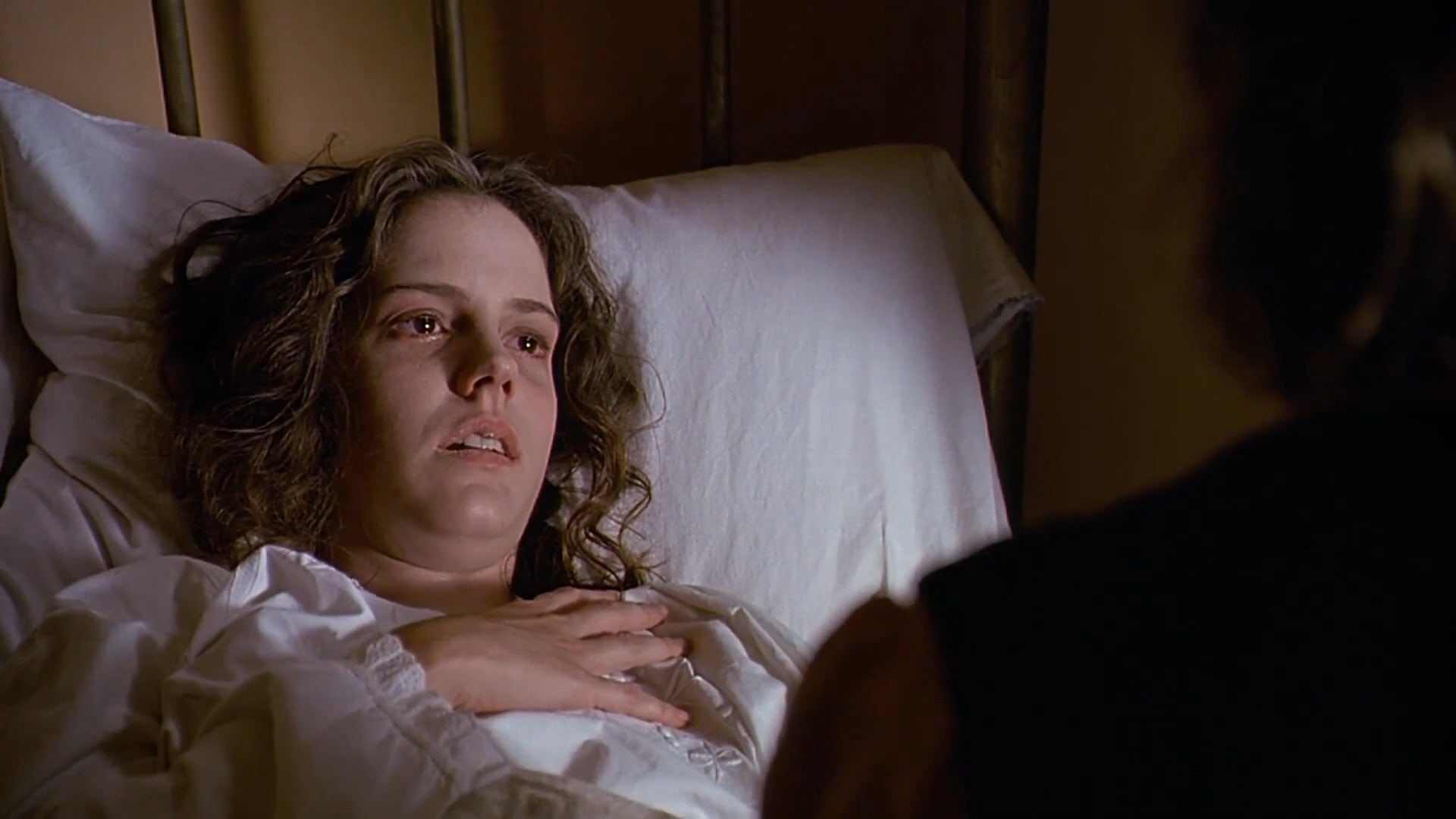
Idgie continues to live her days as a free spirit as a result, but she has been permanently changed.
In the meantime, others who were aware of their story found inspiration in it. After learning about the women from Ninny in a nursing facility, Evelyn herself discovers the important life lessons and changes her own life.
Review
As I say, this film is very emotionally intense. There’s quite a bit of death. Buddy and Ruth’s death, in particular, are very emotional; I was holding back the tears. But there are also some very heartwarming moments, especially between Idgie and Ruth.
I was really touched by the part where they were chucking food out of the train for the less advantaged people. And like I said, this film will round-house kick you in the feelings; it just will.
Overall, I love this film, it’s a classic, and I can absolutely understand why it means so much to a generation of lesbians who struggle to see themselves and their relationships represented anywhere else.
This film also resonated with me because it essentially comes from a place that explores what it is to exist in an unjust world, what it is to love, and what it is to lose that love, which just about anybody can connect to, no matter the time period.


